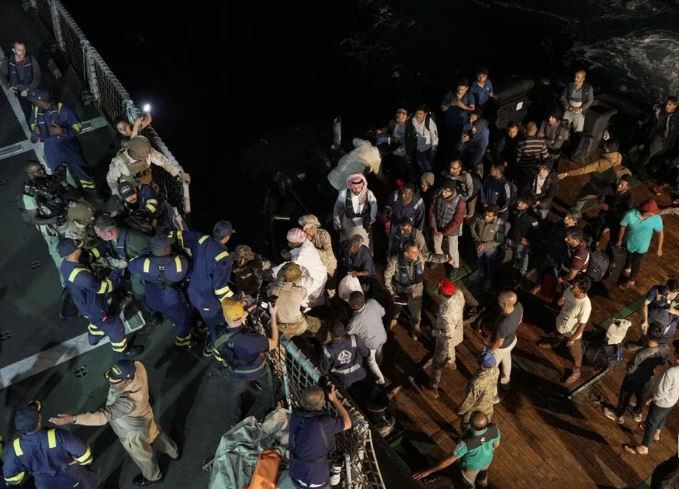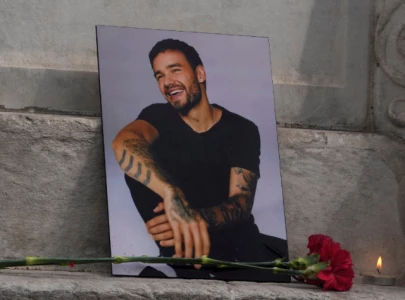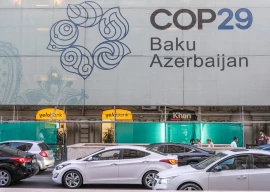
Sudan's rival military forces accused each other of fresh violations of a ceasefire on Sunday as their deadly conflict rumbled on for a third week despite warnings of a slide towards catastrophic civil war.
Hundreds of people have been killed and thousands wounded since a long-simmering power struggle between the Sudanese army and the paramilitary Rapid Support Forces (RSF) erupted into conflict on April 15.
The RSF said a formal ceasefire agreement which was due to expire at midnight would be extended for a further 72 hours "in response to international, regional and local calls". There was no immediate comment from the army.
The parties have fought on despite a series of ceasefires secured by mediators including the United States.
The situation in Khartoum, where the army has been battling RSF forces entrenched in residential areas, was relatively calm on Sunday morning, a Reuters journalist said, after heavy clashes were heard on Saturday evening near the city centre.
The army said on Sunday it had destroyed RSF convoys moving towards Khartoum from the west. The RSF said the army had used artillery and warplanes to attack its positions in a number of areas in Khartoum province.
Reuters could not independently verify the reports.
In an apparent bid to boost its forces, the army said on Saturday that the Central Reserve Police had begun to deploy in southern Khartoum and would be deployed gradually in other areas of the capital.
Sudan's police said that the force had been deployed to protect markets and property that had been subjected to looting. The RSF on Saturday warned it against becoming involved in fighting.
The force is a large and heavily-armed division of Sudan's police force that has fighting experience from conflicts in the western region of Darfur and in the Nuba Mountains in southern Sudan.
In March 2022, the United States imposed sanctions on the force, accusing it of using excessive force against protesters who were demonstrating against a 2021 military coup.
'No direct negotiations'
The fighting in Khartoum has so far seen RSF forces fan out across the city as the army tries to target them largely by using air strikes from drones and fighter jets.
The conflict has sent tens of thousands of people fleeing across Sudan's borders and prompted warnings the country could disintegrate, destabilising a volatile region and prompting foreign governments to scramble to evacuate their nationals.
The United States has sent a navy ship to take its citizens, two U.S. officials said, as Britain announced it had arranged an extra evacuation flight from Port Sudan on the eastern Red Sea coast.
The prospects for negotiations have appeared bleak.
"There are no direct negotiations, there are preparations for talks," U.N. special representative in Sudan, Volker Perthes, told journalists in Port Sudan, adding that regional and international countries were working with the two sides.
Perthes, who told Reuters on Saturday the sides were more open to negotiations than before, said he hoped a direct meeting between representatives of the sides would be held as soon as possible aimed at "achieving an organised ceasefire with a monitoring mechanism".
Also read: Fighting rages in Khartoum, but envoy sees sides more open to talks
Army leader General Abdel Fattah al-Burhan has said he would never sit down with General Mohamed Hamdan Dagalo, also known as Hemedti. The RSF chief in turn said he would talk only after the army ceased hostilities.
Saudi Foreign Minister Prince Faisal bin Farhan, whose government has played a part in mediating ceasefires, met Burhan envoy Daffalla Al-Haj Ali in Riyadh, the Saudi foreign ministry said.
"The foreign minister affirmed the Kingdom's call for calm, prioritising national interest and stopping all forms of military escalation," the ministry said.
Aid
With the United Nations reporting only 16% of health facilities in Khartoum operating as normal, the International Committee of the Red Cross (ICRC) delivered 8 tonnes of medical aid.
"Health-care workers in Sudan have been doing the impossible, caring for the wounded without water, electricity, and basic medical supplies," said Patrick Youssef, the ICRC’s regional director for Africa.
But while approval had been given for the supplies to go to Khartoum, negotiations were ongoing with the sides to facilitate delivery within the city, where hospitals, convoys and ambulances have been attacked, he said.
At least five aid workers have been killed in the fighting.
A third of Sudan's 46 million people needed humanitarian aid before fighting began.
The fighting has derailed an internationally-backed political transition aimed at establishing democratic government in Sudan, where former autocratic President Omar Hassan al-Bashir was toppled in 2019 after three decades in power.
"This war will not lead to a singular army or to a democratic transition and there is no guarantee that the deposed regime will not return to power once more," prominent civilian politician Khalid Omar Yousif said on Twitter.
At least 528 people have been killed and 4,599 wounded, the health ministry said. The United Nations has reported a similar number of dead, but believes the real toll is much higher.

1731028448-0/Untitled-design-(37)1731028448-0-165x106.webp)



















COMMENTS
Comments are moderated and generally will be posted if they are on-topic and not abusive.
For more information, please see our Comments FAQ